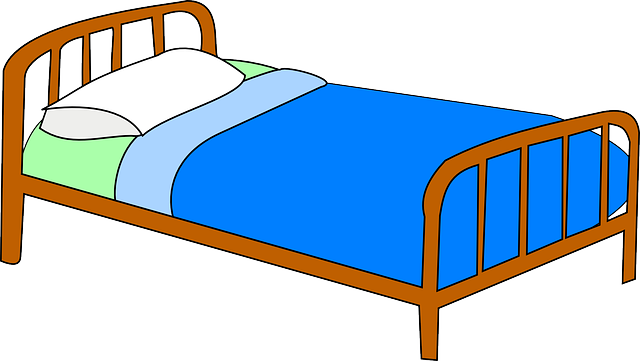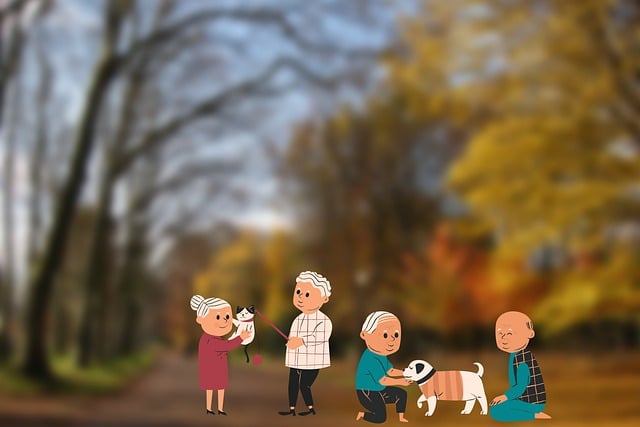CBT therapy is an effective treatment for Obsessive-Compulsive Disorder (OCD), addressing negative thought patterns and behaviors through structured sessions, exposure and response prevention, cognitive restructuring, and mindfulness practices. This evidence-based approach empowers individuals to challenge obsessions, reduce anxiety, and improve daily life management, leading to reduced OCD symptoms, enhanced quality of life, and improved mental well-being. Success stories highlight CBT's ability to reconfigure thought patterns and behaviors associated with OCD, providing lasting relief for many sufferers in today's digital era.
“Unraveling the complexities of obsessive-compulsive disorder (OCD) through Cognitive Behavioral Therapy (CBT), a proven game-changer in mental health. This comprehensive guide explores how CBT effectively targets OCD symptoms, offering a clear path to recovery. From understanding the condition’s intricacies to uncovering powerful techniques, we delve into the collaborative role of therapists and patients, backed by inspiring success stories. Discover the long-term benefits of CBT therapy for OCD, providing hope and practical steps towards a more manageable life.”
Understanding Obsessive-Compulsive Disorder (OCD)

Obsessive-Compulsive Disorder (OCD) is a mental health condition characterized by intrusive thoughts, obsessions, and repetitive behaviors or rituals that individuals feel compelled to perform. These obsessions are often anxiety-provoking, leading individuals to engage in compulsions as a way to temporarily alleviate their distress. The cycle of obsessions and compulsions can significantly impact daily life, taking up considerable time and energy, and interfering with normal routines and relationships.
Cognitive Behavioral Therapy (CBT) is recognized as an effective treatment for OCD. It focuses on identifying and changing unhelpful thought patterns and behaviors that contribute to the disorder. Through CBT, individuals learn to challenge their obsessions, develop healthier coping strategies, and gradually reduce their engagement in compulsive rituals. This form of therapy enables people with OCD to manage their symptoms, regain control over their lives, and improve overall well-being.
What is Cognitive Behavioral Therapy (CBT)?

Cognitive Behavioral Therapy (CBT) is a highly effective form of psychological treatment that focuses on identifying and changing negative thought patterns and behaviors. By challenging distorted thinking and engaging in specific behavioral techniques, CBT helps individuals manage various mental health conditions, including obsessive-compulsive disorder (OCD). This therapy encourages patients to recognize the connection between their thoughts, feelings, and actions, empowering them to adopt healthier coping strategies.
Through structured sessions, CBT for OCD involves learning to recognize and avoid rituals, gradually exposing oneself to anxiety-provoking situations, and replacing obsessive thoughts with more realistic and balanced perspectives. It is a collaborative process where therapists guide patients in understanding the relationship between their cognitive processes and behavioral responses, ultimately leading to improved symptoms and overall well-being.
How CBT Helps with OCD Symptoms

Cognitive Behavioral Therapy (CBT) is a highly effective approach in managing and reducing symptoms of obsessive-compulsive disorder (OCD). CBT focuses on identifying and modifying unhelpful thought patterns and behaviors that contribute to OCD. Through this process, individuals learn to challenge their obsessions and compulsions, gaining a deeper understanding of their condition.
The therapy involves exposure and response prevention, where patients gradually face their fears while learning to resist the urge to perform compulsive rituals. This helps in desensitizing them to obsessive thoughts over time. CBT also teaches relaxation techniques and problem-solving skills, enabling individuals to cope better with OCD’s impact on their daily lives.
Techniques Used in CBT for OCD

Cognitive Behavioral Therapy (CBT) employs a range of effective techniques to address obsessive-compulsive disorder (OCD). One key method is exposure and response prevention (ERP), where individuals gradually confront situations that trigger obsessions while learning to resist the urge to perform compulsive behaviors. This process helps to desensitize them over time, reducing anxiety and the need for rituals.
Another important technique is cognitive restructuring, which focuses on challenging and modifying negative thought patterns associated with OCD. By identifying and changing distorted beliefs, individuals can gain a more realistic perspective, thereby decreasing obsessive thoughts. CBT also encourages mindfulness practices, such as meditation and awareness exercises, to help individuals stay focused in the present moment, reducing rumination and compulsive urges.
The Role of the Therapist and Patient Collaboration

Success Stories and Long-Term Benefits of CBT

Many individuals suffering from obsessive-compulsive disorder (OCD) find hope and significant improvement through Cognitive Behavioral Therapy (CBT). Success stories abound, with countless people sharing their transformative journeys. These narratives often highlight the power of CBT in reconfiguring thought patterns and behaviors associated with OCD. By challenging unhelpful cognitions and learning coping strategies, individuals regain control over their lives, breaking free from the cycle of obsessions and compulsions.
The long-term benefits of CBT for OCD are well-documented, offering lasting relief that can endure for years. Research shows that those who complete CBT therapy typically experience reduced OCD symptoms, improved quality of life, and enhanced overall mental well-being. This form of therapy empowers individuals to manage their condition effectively, fostering resilience and self-reliance. As a result, many former OCD sufferers become advocates, sharing their stories to inspire others and spreading awareness about the transformative potential of CBT therapy.
